YOU'LL NEVER EAT LUNCH IN THIS TOWN AGAIN
shout out to Pamela at The Grill on the Alley in Bev Hills for always giving me a power table
It’s Oscar week and I’m in LA. This fills me with anxiety, the stench of social climbing hangs thick in the air and your place on the totem pole is never so clear (let’s call mine negative 568 at the moment.) Even nominees are ready for the long slog of shaking hands that started last Fall (or Summer if their film premiered at Cannes) to be over.
Though I may recoil from it, I still love the smell of Oscar week hustle, even if, in the aftermath of the fires and a White House that hates Hollywood, this season has a more muted fragrance.
The last time I was in town was during Golden Globes week, just before everything went even more to shit. But as the song goes, there’s no people like show people they smile when they are low … a saying that my father drilled into me from the time I could sing along. Dad’s best friend growing up was Mary Ellin Berlin, daughter of Irving Berlin, the songwriter of “There's No Business Like Show Business.” When I was born, Irving gave me a necklace of a single pearl surrounded by three tiny diamonds which my parents allowed me to wear once I turned 16. I never took it off until a bad car accident broke my ribs in my 30s and I accidentally left it in a chiropractor’s office during an adjustment, never to be seen again. Ever since my dad died, whenever I hear the song come on, I think of him talking to me through the sound waves —You're broken-hearted But you go on— and I shed a (real) showbiz tear.
I acknowledge my LOVE/HATE relationship with Hollywood, aware that as much as I reject it, I secretly want to be accepted. The other day someone texted asking if I was “hosting the Future Perfect party at the ‘Goldwyn’ house tonight?” which sums up my insider/outsider status. Not only was I unaware of said party, my grandad lived a mere few years at the location they are marketing as the “Goldwyn House.” The real “Goldwyn House” that my grandparents built, in which both my dad and I grew up in, is now owned by Taylor Swift. So there you have it in a nutshell—apparently I am not cool enough to merit an invite to a party which is being sold using the “glamour” of my own last name.
Welcome to Hollywood, folks.
Which brings me to one of my favorite reading genres, (besides SEX, DRUGS, ROCK N ROLL) books about Hollywood. The best ones make their author an outcast for the secrets spilled— or —solidly skewer the industry with such panache that even insiders (secretly) applaud. In the spirit of STARF⭐️CKER, here are some of the juiciest ones. This will probably end up being a series as I’ve got a whole section of my library filled with books on the subject.
Happy Oscar week!
Julia Phillips You’ll Never Eat Lunch In This Town Again is the aptly titled memoir from the late coke addled producer Julia Phillips, who was the first female producer to win a Best Picture Oscar (for The Sting, in 1973.) In the book, she notes that when she accepted her award, she was high on a cocktail of “a diet pill, a small amount of coke, two joints, six halves of Valium, which make three, and a glass and a half of wine.'' Among her pictures were classics Taxi Driver, Close Encounters of the Third Kind and Don’t Tell Mom the Babysitter’s Dead. Julia’s career came to a screeching halt after she spilled the beans on Hollywood’s drug and sex culture which made her an industry pariah but also a bestselling author. She was even quite literally banned from eating lunch at then popular hot spot Morton’s. Obviously she is an icon for the no holds barred exposing the Starf*ckery. I am unfortunately not quite so bold (or addicted to cocaine.)
Scott Berg Goldwyn gets a shout out because… nepotism, baby! I was a kid when Scott (a Pulitzer Prize winning author) was doing his research on my grandad for this book and he has since become a close family friend. I refer to his book frequently when working on pieces for STARF⭐️CKER, to understand more about Hollywood and my own family. I also have all the unauthorized bios I’ve been able to find about my grandad, but this one is the most thorough. Scott has been through 20,000 pieces of my grandfather’s archive (now housed by the Academy Of Motion Picture Arts and Sciences Library in Beverly Hills) which contains everything from letters between Thomas Edison and grandpa Sam when Sam was just starting to think about making movies, to letters from Warren Beatty to Sam in the 1970s. A must read if you’re a cinephile and no I don’t get kickbacks for the promo.
Esther Williams The Million Dollar Mermaid starts with Esther taking LSD under the care of a Psychoanalyst at the suggestion of Cary Grant and just gets better from there. Even if you have never heard of the swimming superstar Esther Williams, her technicolor gossip, tumultuous marriages and financial ruin are captivating. I became a convert.
Diana McLellan The Girls: Sappho Goes to Hollywood if you love Hollywood history, especially that which has long been hidden, this book delves into the private lives of stars like Greta Garbo, Marlene Dietrich, Tallulah Bankhead, Alla Nazimova and more. Spanning Hollywood, New York, Paris and London artistic and literary circles of the 1920s to 40s with chronicles of women like poet Mercedes de Acosta, who were then the height of lesbian chic and still much emulated on the runways of Paris today. Sigh…they really don’t make ‘em like they used to.
Louise Brooks Lulu in Hollywood is a collection of autobiographical essays by golden age movie star and OG flapper, Louise Brooks. Although she started out in Hollywood, she became an international star after going to Europe and starring in two films for German director G.W. Pabst, Pandora’s Box and Diary of a Lost Girl, both released in 1929. Just like Jimi (Hendrix) she had to crack the mold overseas before America could accept this revolutionary star. At 18 Louise had an affair with the then married 36 year old Charlie Chaplin, at 26 she was filing for bankruptcy, and by 31, she was retired (blacklisted) from Hollywood. Her wit, high brow references and keen observation of the chew them up spit them out mentality of Hollywood make this a must read.
Nathaniel West The Day of the Locust (1939) and Budd Schulberg What Makes Sammy Run (1941) When I went to art school (S.V.A) in New York, they let me design an independent study Literature class, based around books on Hollywood. My father suggested these two novels, both written about 1930s Hollywood but apt today.
What Makes Sammy Run, is the rags to riches American dream story of Sammy Glick, a penniless Jewish boy born in the ghetto of the Lower East Side who rises to the top as a Hollywood mogul, backstabbing with blind ambition along the way. Although inspired by the author’s own father, the character of Glick could have been modeled on any the early Jewish showbiz pioneers, including my grandfather, Sam Goldwyn, who shares the same initials. According to one (unauthorized) bio of my grandad, he offered Schulberg money not to publish it. Ben Stiller has had the option to this book for over two decades now and has been trying to make it into a feature film.
Day of the Locusts is about a Yale grad student, Tod Hackett, who comes West to be a scenic painter for Hollywood sets. When Hackett isn’t rubbing up against aspiring starlets, day players and hangers-on, he is hard at work on a fine art painting of his own, titled "The Burning of Los Angeles,” depicting a catastrophic blaze that will destroy the city. West’s searing portrayal of the disillusionment of the American Dream and mob rule of society is even more chilling to re-read in 2025.
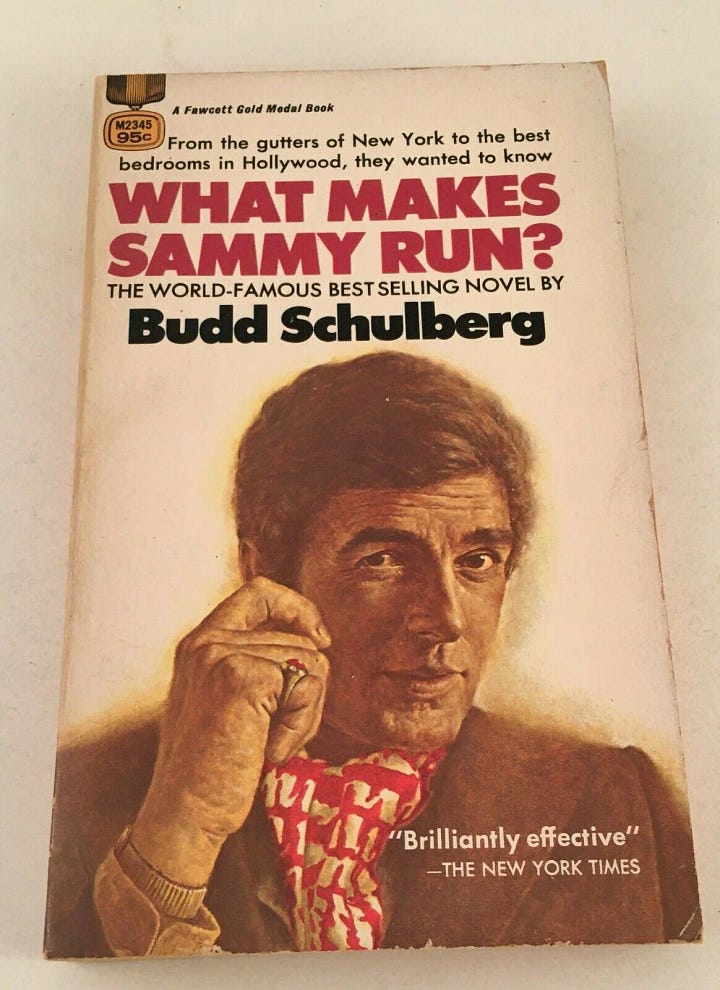
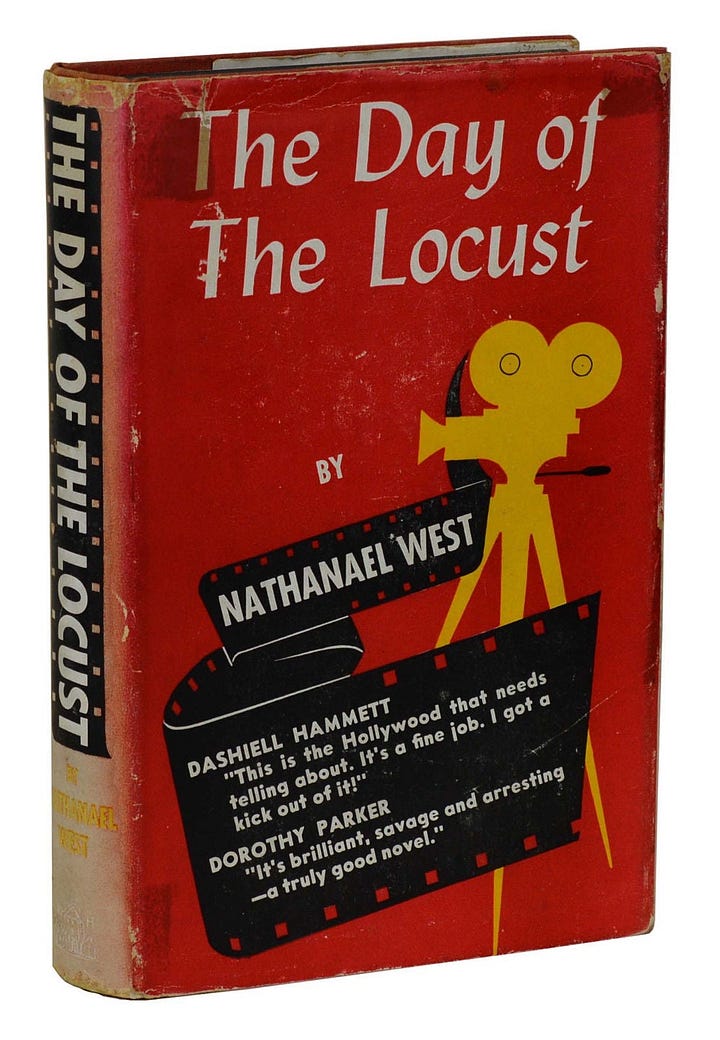
Scotty Bowers Full Service: My Adventures in Hollywood and the Secret Sex Lives of the Stars is exactly as the title advertises. Set in the late 1940s-early 80s, Scotty’s memoir details his days spent pumping gas at a service station where he met (mostly male but some female) movie stars for paid sexual encounters between shifts. Later, he became a pimp to a veritable who’s who of Hollywood. He claims (and I believe him) to have provided sex workers to sex researcher Alfred Kinsey for his work and arranged for Linda Lovelace, the star of 1970s porn classic, Deep Throat to give blow job tutorials at parties. I met Scotty in 2014 through the documentary filmmaker Matt Tyrnauer when he was working on an adaptation of Scotty’s book, Scotty and The Secret History of Hollywood (2017.) Below is a photo of Scotty & I at our first meeting, when I was in the midst of writing my own book on sex work in Los Angeles, Sporting Guide, and the cake at Scotty’s 91st birthday party later that year.
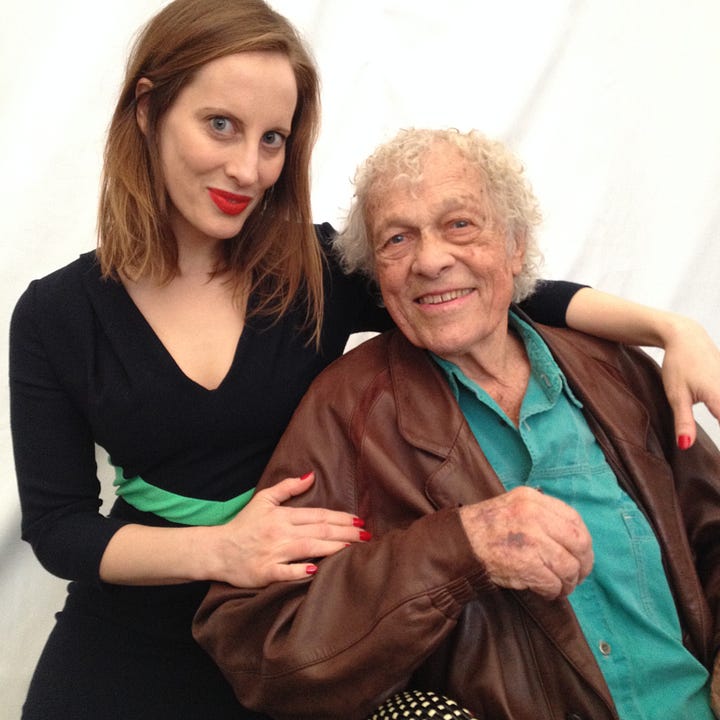
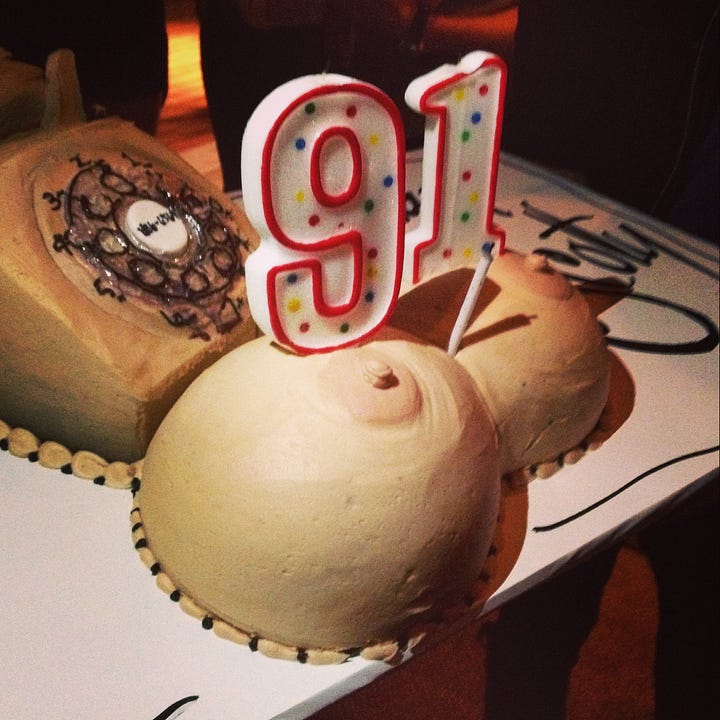
Want more sordid LA?
Sporting Guide: Los Angeles, 1897
by Liz Goldwyn
A brilliantly imaginative, illustrated recreation of an 1890s Los Angeles pocket guide, or "Sporting Guide," to the brothels of the day.
Los Angeles, 1897, When Vice Ruled The City
Long before the glitz and glamour of Hollywood, Los Angeles was a city where dreamers from all over the world came to make their fortunes—where a madam named Pearl Morton entertained the most powerful politicians and entrepreneurs inside her namesake brothel. In a series of haunting, interlinked stories set in the period, author and filmmaker Liz Goldwyn re-creates a “sporting guide”—a secret diary and guidebook of the best brothels and prostitutes in the city. In this world a hushed conversation inside a velvet-lined boudoir could destroy a man, and the rustle of bushes might reveal a sordid assignation. Based on original research in the libraries and archives of Los Angeles, these fictional stories are often inspired by real historical characters—like the laudanum-addicted Cora Phillips, whose tombstone Goldwyn rediscovered, or Bartolo Ballerino, Italian immigrant slumlord of the forgotten red-light district, or thirteen-year-old Frances dreaming of life beyond the Children’s Orphan Asylum. Interspersed in these stories—and featuring over a hundred historical photos and illustrations—Goldwyn reveals the history of the period, from the rage for corsets to crushed pearl powder cosmetics and the awful cures for syphilis. Sporting Guide evokes a lost world of those on the margins of Los Angeles, of the hustlers who made it into one of the great cities of the world, and Goldwyn gives a poignant voice to the people and stories forgotten by time.

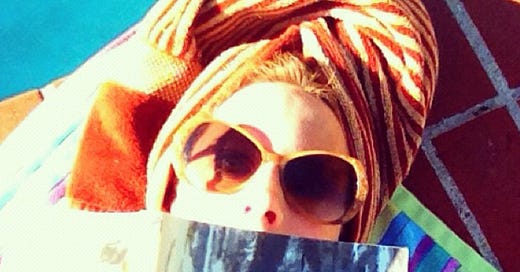




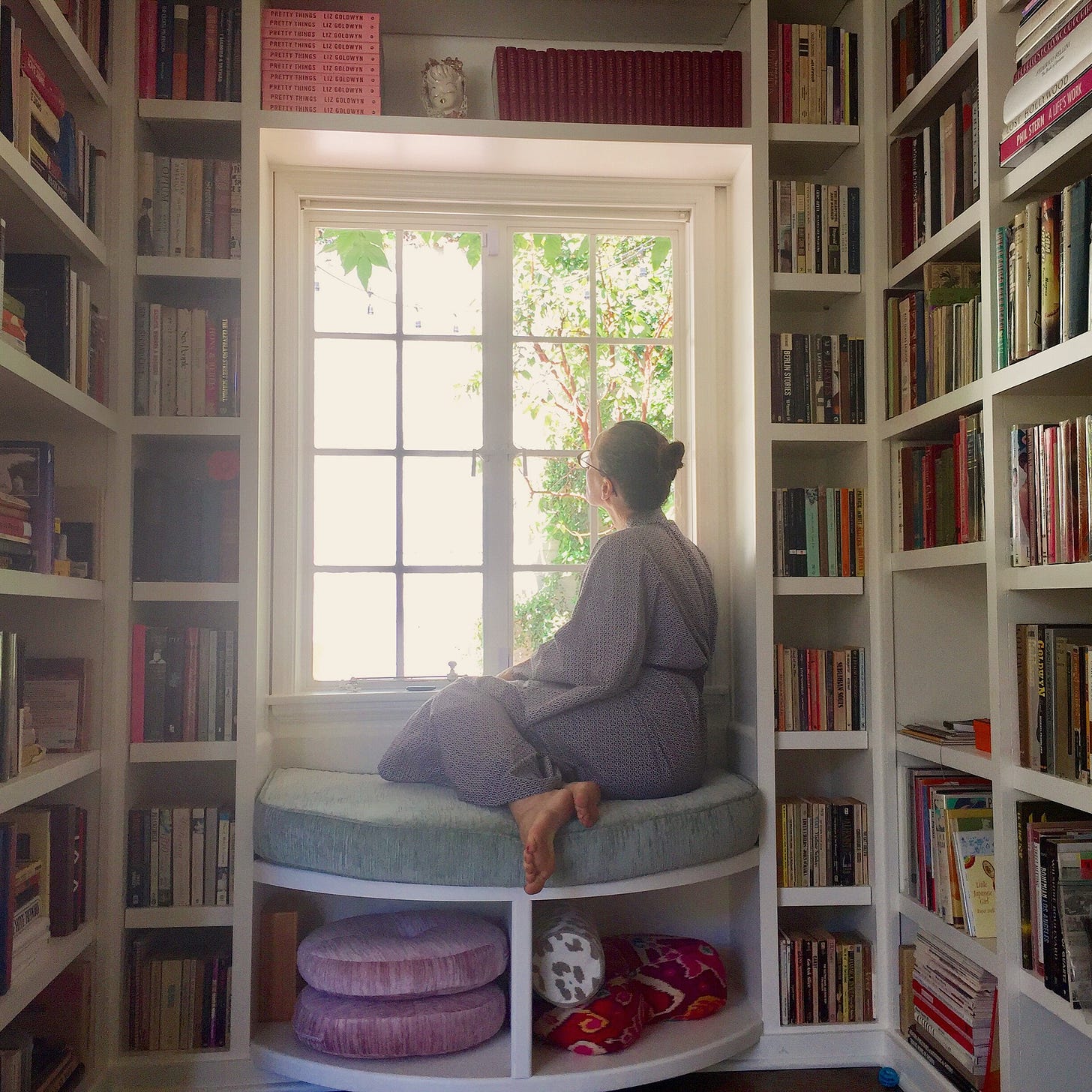
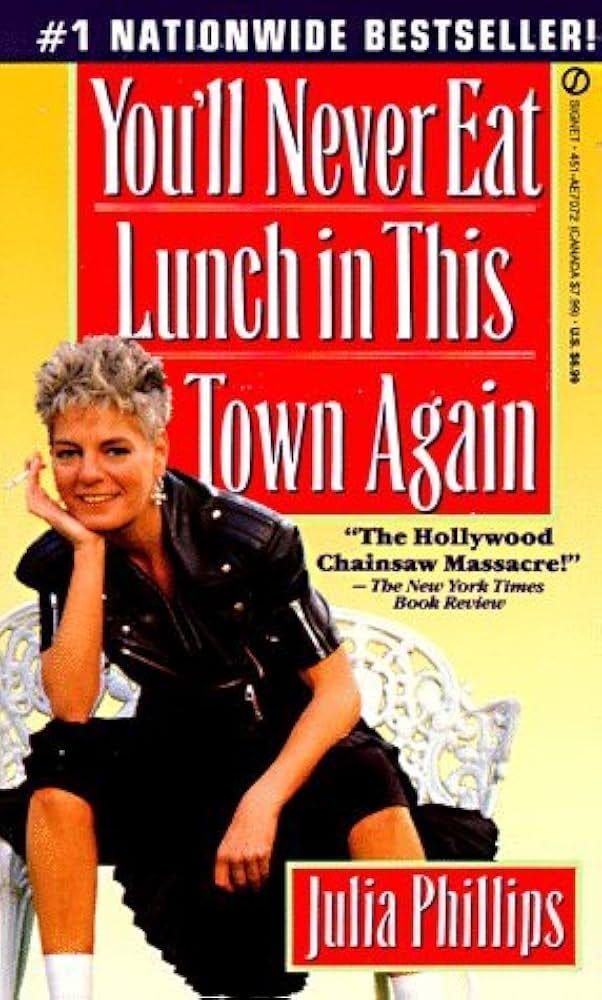
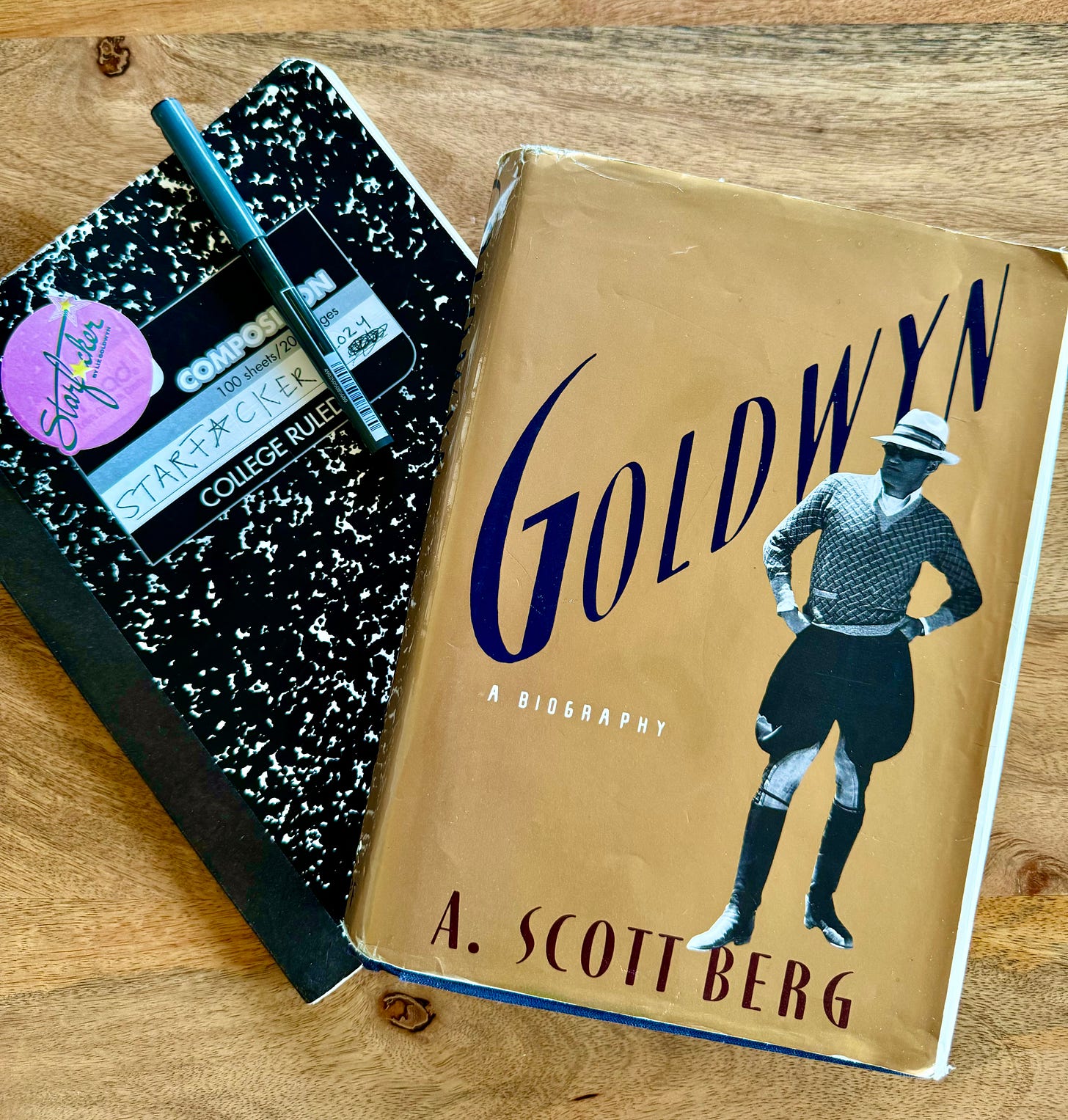
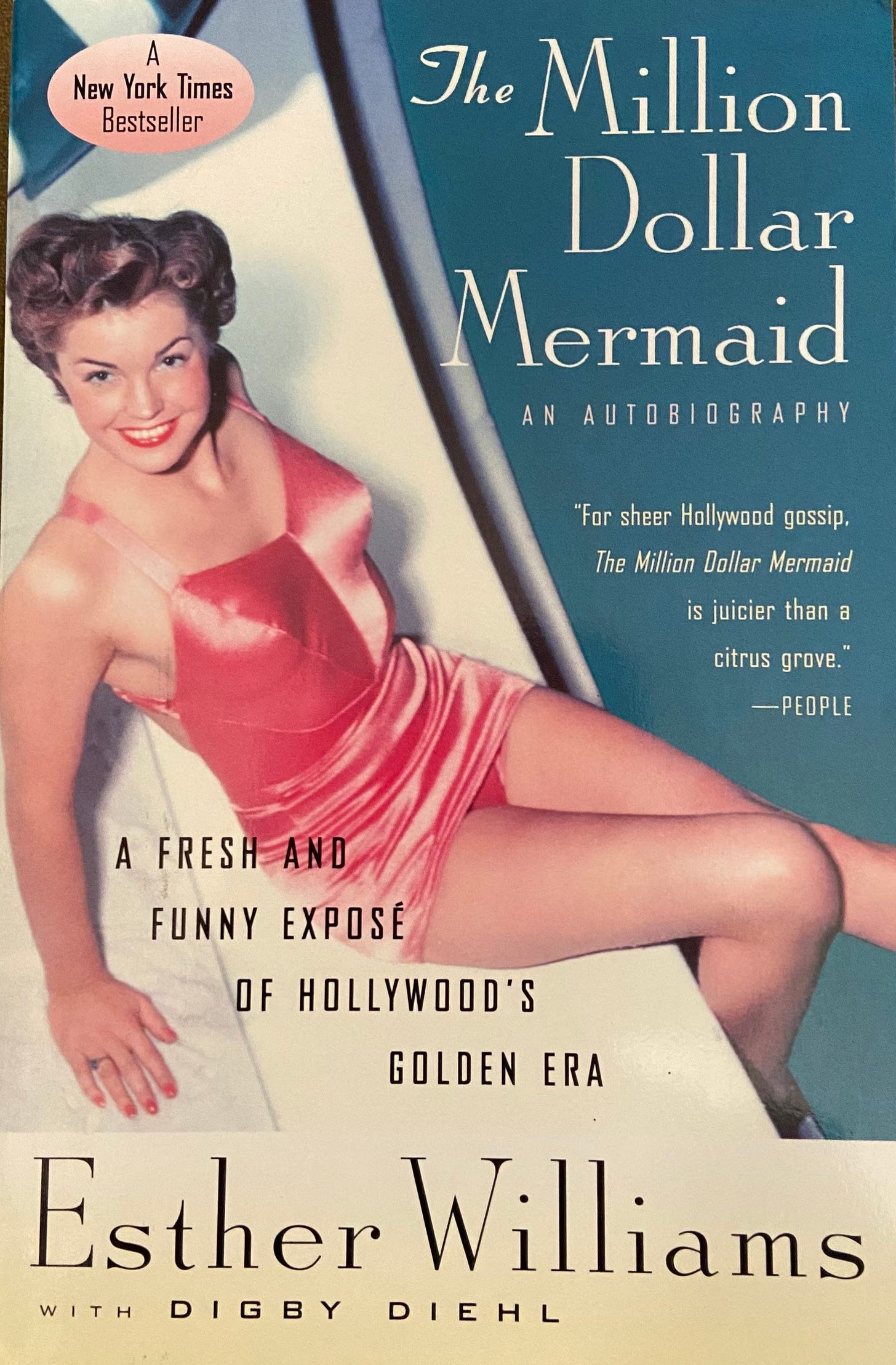

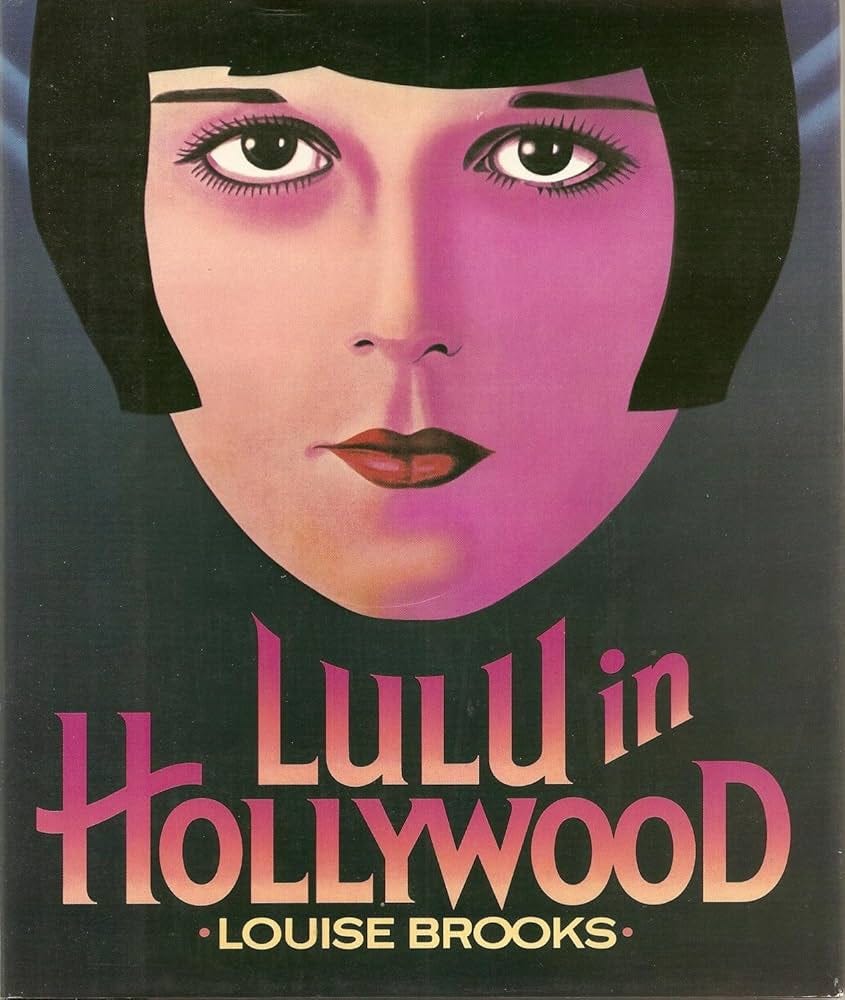

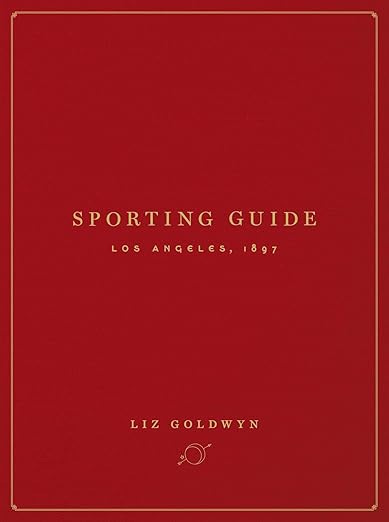
Nice! When I was at UC Davis my senior seminar in English Lit was a focus on California literature...wish these were part of the syllabus! Instead we had Mike Davis' "City of Quartz" and a lot of Raymond Chandler. Also, "Ramona" by Helen Hunt Jackson — the tome that threw the veil of Spanish romance over all of the state, but no one has heard of it in the last 50 years. Will definitely check out the Louise Brooks, and the Esther Williams book - I love her and her movies are so dumb and delightful! (And her bod is insanely gorgeous.) There is a great episode on "You Must Remember This" about her beauty regimen and how she designed her swimsuits...fascinating.